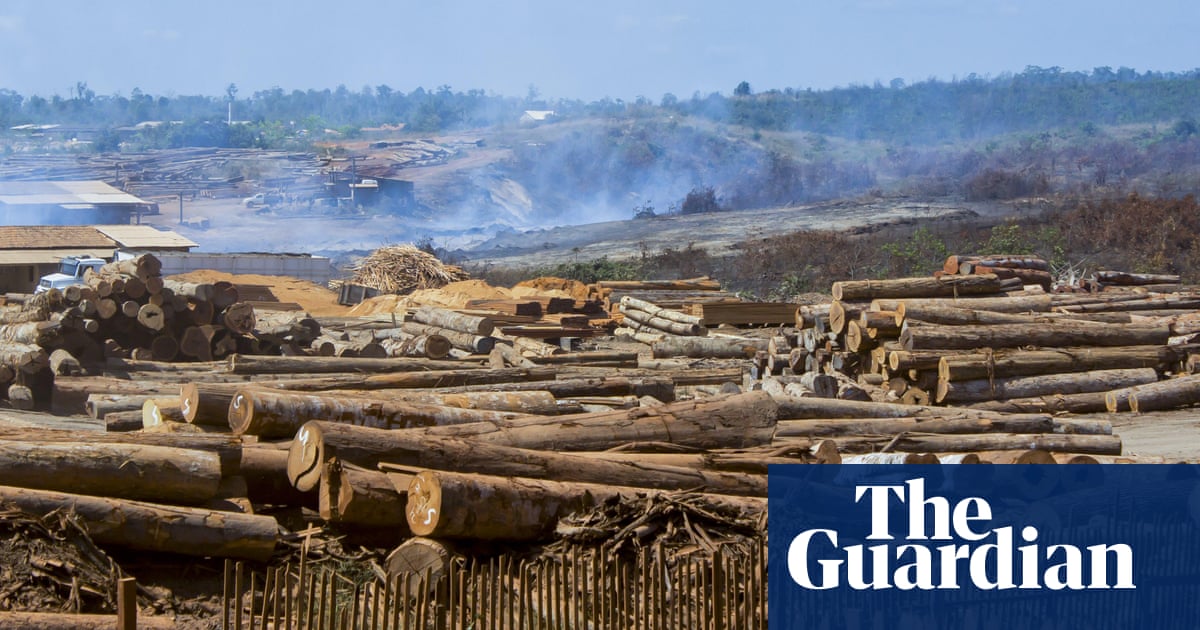Environmental activists inBrazilhave decried a dramatic rollback ofenvironmentalsafeguards after the senate approved a bill that would dismantle licensing processes and increase the risk of widespread destruction.
The upper house passed the so-called “devastation bill” with 54 votes to 13 late on Wednesday, paving the way for projects ranging from mining and infrastructure to energy and farming to receive regulatory approval with little to no environmental oversight.
The bill now returns to the lower house for final approval. No date has been set for a vote there, but it is expected to pass without resistance in the conservative chamber packed with agribusiness lobby supporters.
The initiative proposes overhauling Brazil’s rigorous environmental licensing procedures to make the system simpler and more efficient. But it has been condemned by climate activists and policymakers as a historical setback that ignores the reality of theclimate crisisand flies in the face of Brazil’s commitments to combatting climate change.
“It’s like getting rid of the brakes in a moving vehicle,” said Natalie Unterstell, the president of the Instituto Talanoa climate policy thinktank. She said the bill jeopardises Brazil’s commitments of eradicating deforestation by 2030 and reaching net zero by 2050.
The proposed legislation would allow some projects to renew permits through a self-declaration process and loosen requirements for high-impact ventures such as mining, allowing potentially harmful developments to move forward without serious considerations of their impacts on things like water reservoirs, deforestation or local communities.
“Most licensing procedures will become a push of a button without an environmental study or environmental impact assessment,” said Suely Araújo, the public policy coordinator at the Climate Observatory network of NGOs.
The Socio-Environmental Institute (ISA), a civil society organisation, said the proposal would dismantle a system of environmental protections that was built over decades, and do away with conditions that require companies to adopt prevention, mitigation and compensation measures, thus increasing the risk of destruction and conflict in rural areas.
TheISA calculatedthat the approval of the law would directly threaten more than 3,000 protected areas, including land occupied by Indigenous people andAfro-descendantquilombolacommunities, and put 18m hectares (44.5m acres) of forest at risk. “The bill represents a collapse foretold,” the ISA said.
The bill’s progress through congress has attracted particular dismay as Brazil is preparing to host the Cop30 climate conference in the Amazon in November. The government has said that it wants this year’s summit to be one of action, but this attempt to dismantle environmental protections undermines the country’s credibility, said Unterstell.
“It sends the wrong signal at the wrong time,” she said.
Environment minister Marina Silvadescribedthe approval of the bill as a “death blow” to Brazil’s climate efforts, but other members ofLuiz Inacio Lula da Silva’s government had previously expressed support for the measure, saying it would help attract investment.
Although Lula has been successful in reducing deforestation, which fell by 32% across the country last year according toMapBiomas, he has disappointed the climate movement in other areas, particularly with his stance on oil exploration.
One of the amendments introduced by the senate would notably speed up permits for projects deemed a government priority. Pro-oil senators hope this could benefit controversialexploration projects near the mouth of the Amazon river, a new oil frontier where the state-controlled oil company Petrobras has so far been unsuccessful in its endeavour to obtain drilling permits from the environmental watchdog Ibama.
